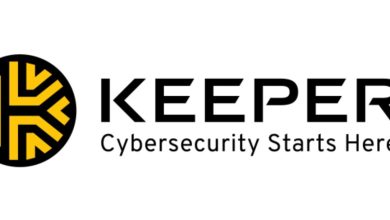Malaysia Backtracks and Scraps Flawed DNS Blockade

The Malaysian government, through its communications regulator, the Malaysian Communications and Multimedia Commission (MCMC), has faced a storm of backlash after it announced plans to enforce Domain Name System (DNS) blocking. The move aimed to curb users from accessing illegal websites, including those hosting online gambling, pornography, scams, and copyright violations. However, what the government likely didn’t anticipate was how vehemently the public would reject the initiative.
This DNS blocking plan was seen by many as a step towards unwarranted censorship and control over internet access. For critics, this wasn’t just about stopping access to illegal sites but a potential backdoor for overreach, leading to the possibility of blocking any content the authorities deemed “inappropriate.”
After lots of heated debate and public outcry, the Malaysian government backed down and decided not to move forward with the DNS redirection. But the saga raised bigger questions: Why did Malaysia think DNS redirection was the answer? Was it ever truly viable? And what does this debate say about the balance between internet freedom and regulatory control?
The Plan for DNS Blocking
The Malaysian government’s original plan was to enforce DNS redirection on all Internet Service Providers (ISPs). In layman’s terms, DNS translates human-readable domain names like “www.google.com” into the numerical IP addresses that computers use to locate websites. By redirecting users’ DNS queries to local servers, the government sought to control which websites Malaysian users could access.
Under this directive, public DNS services like Google’s 8.8.8.8 or Cloudflare’s 1.1.1.1, which are commonly used to bypass regional restrictions, would be rerouted through local DNS servers. Essentially, this would allow the government to block access to any website by ensuring that requests for these sites never reached their destination. This plan, slated for full implementation by September 30, was positioned as a way to protect Malaysian citizens from harmful content.
The MCMC and Communications Minister Fahmi Fadzil defended the plan as a necessary measure to curb illegal online activities, including gambling, pornography, and scams. Between January 2022 and August 2024, over 10,000 websites were blocked by the MCMC, mostly in the categories of online gambling (4484), pornography (3271), copyright violations (1654), and online scams (316). The goal, they argued, was to protect vulnerable groups such as children and teenagers from harmful or illegal content online.
Public Backlash and Censorship Fears
Despite the government’s explanation, the reaction from the Malaysian public was overwhelmingly negative. The plan was widely criticised as being an authoritarian tool, potentially enabling mass censorship under the guise of public safety.
Many citizens feared that this DNS redirection could be misused. Could it extend beyond just illegal websites? What’s to stop the government from blocking access to politically sensitive content, controversial media outlets, or even websites critical of its policies? The fear of potential overreach was palpable, especially in a country where freedom of expression has long been a contentious issue.
Social media platforms buzzed with complaints and scepticism. Reddit users compared the DNS blocking initiative to China’s infamous “Great Firewall,” fearing a future where the Malaysian government could restrict what citizens could see or read online at their discretion. Some even began reporting problems accessing non-offensive websites, including the Galen Centre for Health and Social Policy and the popular digital art platform ArtStation.
What further fuelled public anger were reports from gamers and tech enthusiasts that the DNS redirection was causing disruptions. Some gamers found they couldn’t access gaming services like the Nintendo eShop or suffered from latency issues while playing online. These disruptions, though unintended, fuelled fears that the government’s solution was poorly thought out and would cause more harm than good.
Is DNS Blocking Really the Right Answer?
While the government’s motivation to curb access to harmful websites is understandable, DNS blocking is an overly simplistic solution to a far more complex problem. The Internet is not a static environment, and blocking access to illegal sites through DNS redirection is like putting a bandage on a broken bone. It might hide the issue temporarily, but it won’t fix the underlying problem.
Firstly, DNS blocking is easily bypassed by those who know how. Tech-savvy users can quickly switch to Virtual Private Networks (VPNs) or use encrypted DNS services such as DNS over HTTPS (DoH), which encrypts DNS queries and prevents tampering or redirection. This means that while everyday users might be inconvenienced by the new regulations, those actively seeking to engage with illegal sites can do so with little effort.
Moreover, the reliance on DNS blocking could open doors to new cybersecurity risks. By forcing users through local DNS servers, there’s a heightened chance of misconfigurations or malicious actors taking advantage of the system. Redirecting users to unauthorised websites or creating man-in-the-middle attacks are real possibilities. Instead of protecting users, this method could expose them to more harm.
The fundamental problem with DNS blocking is that it addresses the symptom, not the cause. Illegal content on the web – whether it’s gambling, pornography, or scams – will persist, no matter how many websites are blocked. Those operating illegal websites are well-versed in evading restrictions, and for every website blocked, several more will likely appear under new domains. This leads to a game of digital whack-a-mole that’s unsustainable in the long term.

In Need for A Better Approach
So, if DNS blocking isn’t the answer, what is? A more effective approach to curbing access to illegal websites must involve a combination of strategies: Improved digital literacy, smarter law enforcement, and comprehensive cybersecurity measures.
Rather than trying to block websites, Malaysia should focus on educating its own people about the dangers of illegal online activities. By promoting digital literacy, the government can empower people to make informed decisions about their online behaviour. Knowing how to recognise scams, avoid harmful websites, and protect personal data is far more valuable in the long run than simply blocking access to certain sites.
Another key aspect is enforcement. Instead of DNS blocking, the government should invest in stronger cybercrime units capable of tracking and prosecuting those responsible for illegal content. Rather than playing the endless game of blocking websites, law enforcement can target the root cause – whether it’s illegal operators or criminal networks behind these sites. Collaborative efforts with other nations would also be crucial, given the global nature of the Internet.
Additionally, working with technology companies and Internet Service Providers (ISPs) to develop more nuanced solutions can be part of the answer. Instead of blanket blocks, the government could explore systems that filter harmful content at the individual level, allowing users to set their own browsing preferences.
Malaysian Government Backs Down After Huge Outrage
Following significant controversy and public outcry, with reports of even legitimate sites being blocked, the Malaysian government decided to halt the DNS redirection plan. Fahmi Fadzil announced that MCMC would not proceed with the implementation, citing feedback from public engagement sessions. He acknowledged the importance of online safety but reiterated that any measure must be carefully balanced to protect citizens without compromising their freedoms.
This reversal reflects how public pressure can shape policy. It also highlights the complexity of governing the Internet, where protecting citizens from harm must be carefully weighed against the right to free and open access to information.
The DNS redirection controversy in Malaysia is emblematic of a larger global debate on Internet governance. Governments worldwide are grappling with the challenge of regulating harmful content while maintaining an open Internet. In Malaysia’s case, the government’s attempt to introduce DNS blocking may have been well-intentioned, but it was far from the right solution.
It goes along with the saying “The end never justifies the means.”





